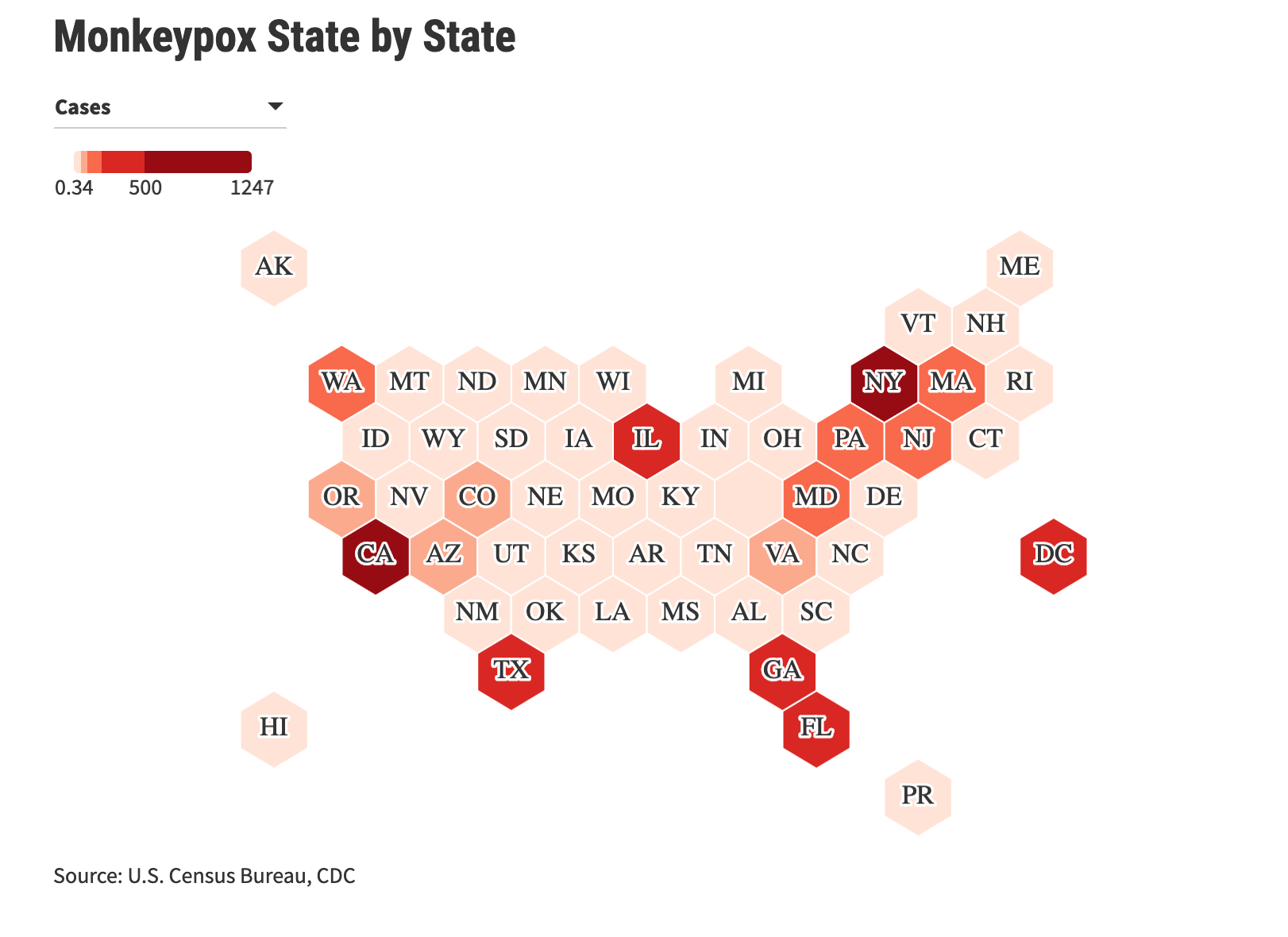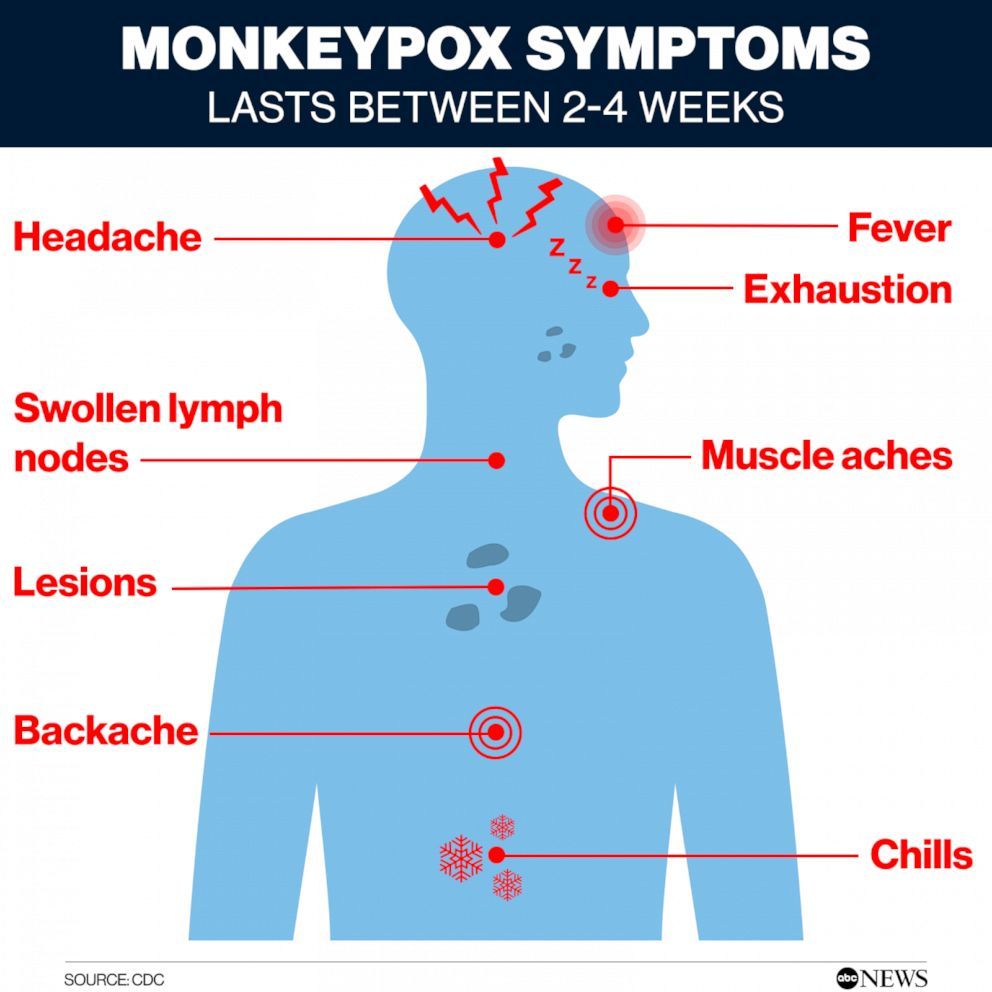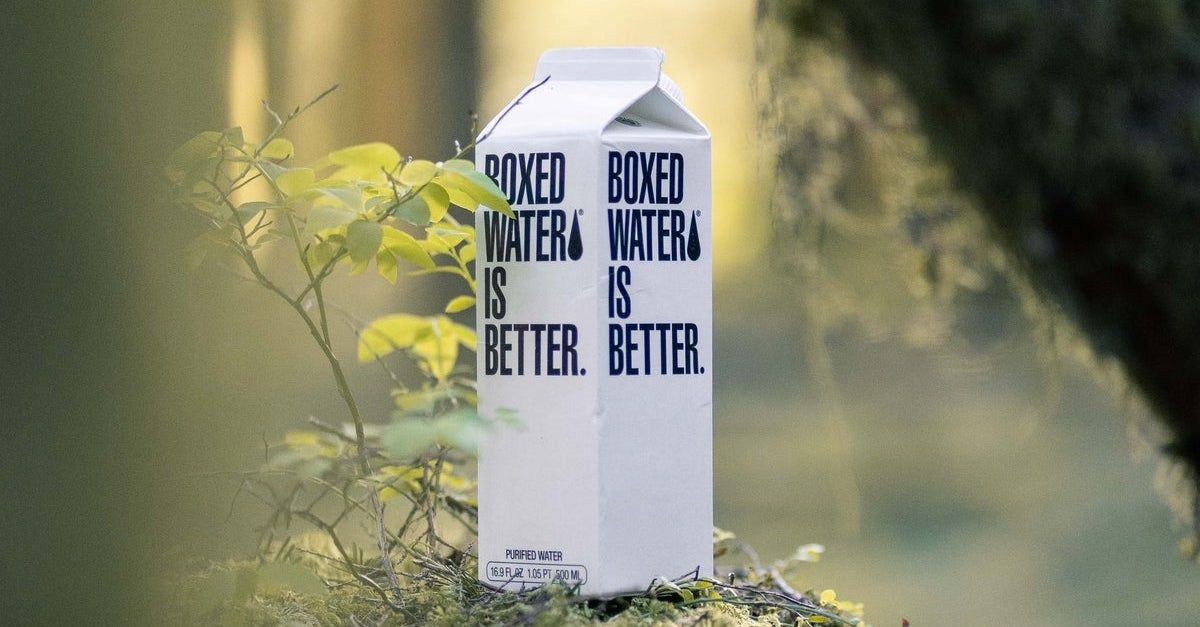Sunday Read No. 5: Monkeypox, Photos from Norway, and Boxed Water
Welcome to the 5th edition of the Sunday Read. We'll be covering Monkeypox, photos from Norway, and Boxed Water this week.

Welcome to the 5th edition of the Sunday Read. We'll be covering Monkeypox, photos from Norway, and Boxed Water this week.
😷 Monkeypox is spreading in the United States

On July 23, the World Health Organization declared monkeypox a global health emergency, its highest-level warning. Globally 22,485 cases have been confirmed, according to the Centers for Disease Control and Prevention (CDC), the overwhelming majority outside of countries in central and western Africa where the virus is normally found. (WashingtonPost)
What is MonkeyPox?

From the CDC:
Monkeypox is a rare disease caused by infection with the monkeypox virus. Monkeypox virus is part of the same family of viruses as variola virus, the virus that causes smallpox. Monkeypox symptoms are similar to smallpox symptoms, but milder, and monkeypox is rarely fatal. Monkeypox is not related to chickenpox.
Monkeypox was discovered in 1958 when two outbreaks of a pox-like disease occurred in colonies of monkeys kept for research. Despite being named “monkeypox,” the source of the disease remains unknown. However, African rodents and non-human primates (like monkeys) might harbor the virus and infect people.
The first human case of monkeypox was recorded in 1970. Prior to the 2022 outbreak, monkeypox had been reported in people in several central and western African countries. Previously, almost all monkeypox cases in people outside of Africa were linked to international travel to countries where the disease commonly occurs or through imported animals. These cases occurred on multiple continents.
Monkeypox can spread to anyone through close, personal, often skin-to-skin contact, including:
- Direct contact with monkeypox rash, scabs, or body fluids from a person with monkeypox.
- Touching objects, fabrics (clothing, bedding, or towels), and surfaces that have been used by someone with monkeypox.
- Contact with respiratory secretions.
My disappointment in the Biden Administration's response
I'm personally very disappointed with the Biden administration's response to Monkeypox. It seems we are repeating mistakes from past global health emergencies.
The narrative in the media is that MonkeyPox ONLY affects the LGTBQ+ community. However, that is not true AND harms members of that community as well.
The HIV/AIDs crisis is one of the saddest and heartwrenching periods of public health. Thousands of deaths could have been avoided if we did not brand this as a "gay disease" when it first came out. It seems we are heading in this direction.
While MonkeyPox is not as deadly as HIV/AIDs, it still is a disease that can have negative health consequences and be painful to anyone who gets it.
You can read a testimonial below of what it's like getting MonkeyPox
Well, it’s official—I have monkeypox.
— Matty Easton (@easton_matty) July 29, 2022
This disease has put me through the wringer (and if I’m being blunt, may be the worst pain I’ve ever experienced). It is no joke.
Here are the facts
- You can get Monkey Pox from riding public transportation.
- You can get MonkeyPox from going to a bar
- You can get MonkeyPox from being in close contact with people
- AND you can get MonkeyPox from sexual activity
Even though this disease primarily affects the LGBTQ+ community right now, it creates a stigma around this disease and lowers the ability to get resources for it. The Biden administration should use its presential pulpit to counter the media narrative around this disease.
We have vaccines. Why are we not deploying them fast enough???
✈️ Photos from Norway
I found these photos on Twitter and thought they were awesome. Thought you'd enjoy!
These are courtesy of @davidnjiang:
exploring Oslo pic.twitter.com/OBtcUkDpG1
— david is in san francisco 🌉 (@davidnjiang) July 28, 2022
last few days in Norway 🥲 pic.twitter.com/x7OdwKBAOH
— david is in san francisco 🌉 (@davidnjiang) July 30, 2022
Is Boxed Water Better?

Note: Re-usable water containers are obviously the best solution for the environment.
In the absence of reusable containers, what should we do?
As we think about sustainability is it better to use:
- mostly paper based waters (e.g. Boxed Water)
- aluminum cans
- one-time use plastic bottles (e.g. aquafina, dasani, etc.)

It's an interesting thought I've been wrangling with all week. Alaska recently shifted to Boxed Water in my favorite airplane ride from San Francisco to SoCal.
Let me know your thoughts via email or comments below.
Additional Reads
- Preventing HIV among Latino and African American Gay and Bisexual Men in a Context of HIV-Related Stigma, Discrimination, and Homophobia: Perspectives of Providers
- Biden administration falls into blame game with local authorities over monkeypox response
- https://news.alaskaair.com/sustainability/boxed-water/

